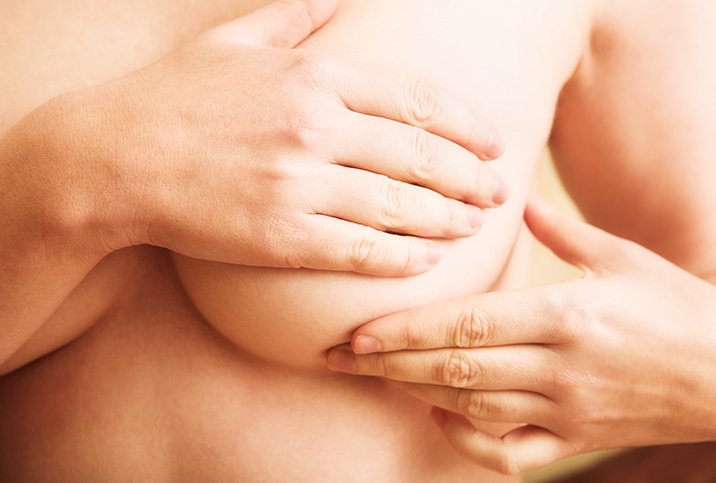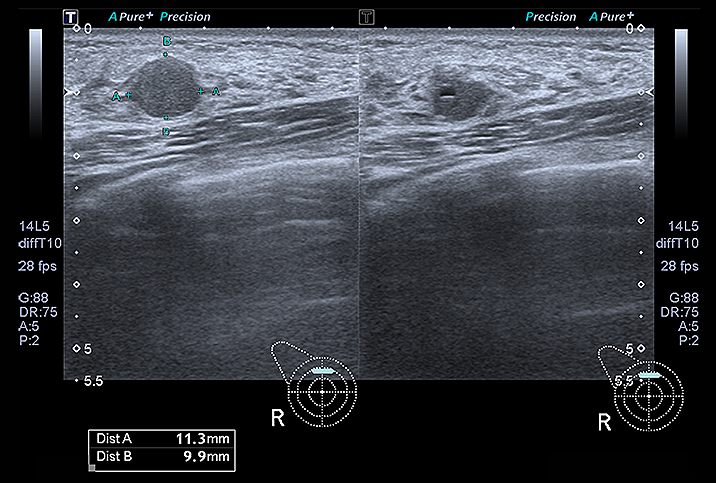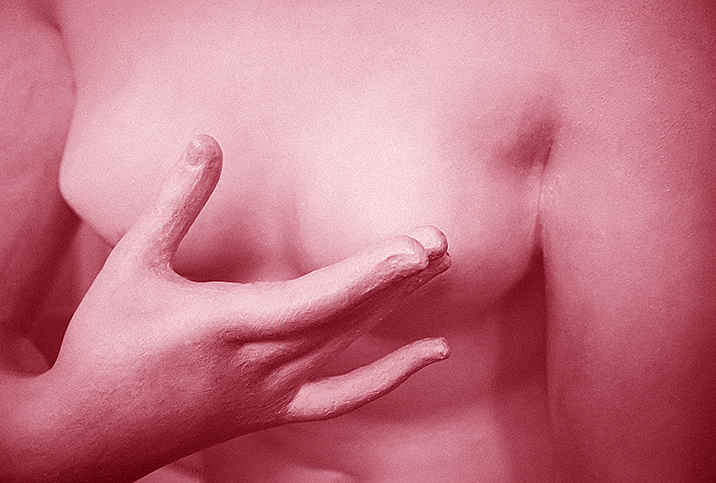Diagnosing Breast Cancer in Younger Women

Young women often get the breast self-exam talk from their mothers, doctors or at a high school health class, but some never get the talk at all.
But that's fine, right? By the time breast cancer is a real risk for women, they'll have it figured out.
Except that's not true at all: Thousands of women under the age of 40 are diagnosed with breast cancer every year. There's simply no time to waste.
At age 34, while performing a breast self-exam, I found something under my breast that felt...well...hard. When I asked a clinic if I could get a mammogram, I was immediately asked if I was at least 40 and if I had a referral. I was frustrated, scared, misinformed and treated as though asking for a mammogram at age 34 was absurd.
At the time, I could have walked into any Planned Parenthood center with these concerns, but again, I was misinformed. I didn't know where to turn and felt dismissed.
In the waiting room with five other women, I thought about how it didn't matter what any of us looked like, how young or old we were, or what our job or family status was—cancer never discriminates, and it can creep in when you least expect it.
Awareness campaigns are failing young women
How many American women believe that breast cancer is something they don't need to worry about until they are 40?
According to Yale Medicine, an estimated 27,393 women younger than age 45 are expected to be diagnosed with breast cancer this year. And every year, more than 1,000 women under age 40 die from breast cancer. Breast cancer in younger women also tends to be more aggressive.
So why isn't anyone sounding the alarm? Why are most awareness campaigns targeted at older women? It really is time for girls and young women to be more informed.
Who is at risk and what you need to do now
Most OB-GYNs will ask you if anyone in your family has been diagnosed with breast cancer and when. They will also ask if you are of Ashkenazi Jewish descent because an estimated 1 in 40 Ashkenazi Jewish women has a BRCA gene mutation that increases cancer risk. (When I received an early mammogram, I did not know I was Ashkenazi Jewish.)
For women who have dense breast tissue, tumors can be hard to spot, and an additional ultrasound should be recommended. Dense breast tissue is also more common in younger women.
Here are some important details women of all ages need to do now:
-
See your OB-GYN and get a physical every year. If you have a high risk for breast cancer, you have an increased risk for reproductive cancers. If you feel awkward talking to your doctor, find a different one.
-
If you are Ashkenazi Jewish and have a family history of breast cancer on either side of your family, get a referral from your doctor (if needed) and schedule a mammogram immediately.
-
If you are 40 and have never had a mammogram, get a referral from your doctor (if needed) and schedule a mammogram immediately.
-
If you are planning on having a baby, it may be an excellent time to see if you can get genetic testing. Family planning is usually an easy way to get your tests covered by insurance.
-
Talk to your family members, because your family health history is critical. If you do not know your family history and have no one to ask, DNA testing may be an excellent place to start.
-
Take care of your health. Eat a healthy and balanced diet, lose excess weight, and quit smoking and drinking.
We begin our fight
After the new year, my best friend and I joked that it was time to get the dreaded yearly mammogram.
"Don't wait," warned my sister-in-law, a retired X-ray technician. "I've seen too many patients who skipped a year or two because they were 'too busy' and found out that they had cancer."
Three weeks later, my test results came in the mail: negative! My best friend, however, was diagnosed with stage 2 cancer. She spent her 40th birthday at four separate doctor's appointments—getting a second opinion and discussing treatment, nutrition and reconstruction. Because she was informed at a young age and found cancer at a not-so-aggressive stage, she will survive.
She's one of the lucky ones.
Breast cancer is not a 40-year-old woman's disease. It is not even gender-specific.
Breast cancer is everyone's disease, and it should be treated as such.


















